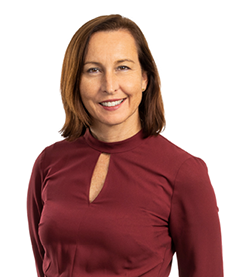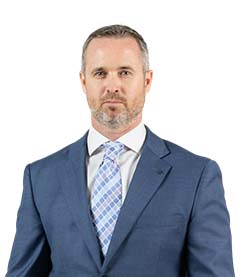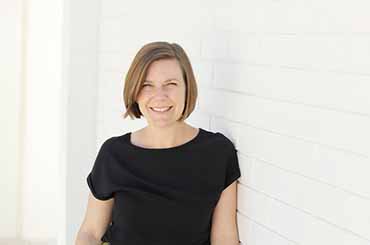- Market services
- Indigenous advisory
-
Compliance audits & reviews
Our audit team undertakes the complete range of audits required of Australian accounting laws to help you to help you meet obligations or fulfil best practice procedures.
-
Audit quality
We are fiercely dedicated to quality, use proven and globally tested audit methodologies, and invest in technology and innovation.
-
Financial reporting advisory
Our financial reporting advisory team helps you understand changes in accounting standards, develop strategies and communicate with your stakeholders.
-
Audit advisory
Grant Thornton’s audit advisory team works alongside our clients, providing a full range of reviews and audits required of your business.

-
Corporate tax & advisory
We provide comprehensive corporate tax and advisory service across the full spectrum of the corporate tax process.
-
Private business tax & advisory
We work with private businesses and their leaders on all their business tax and advisory needs.
-
Tax compliance
We work alongside clients to manage all tax compliance needs and identify potential compliance or tax risk issues.
-
Employment tax
We help clients understand and address their employment tax obligations to ensure compliance and optimal tax positioning for their business and employees.
-
International tax
We understand what it means to manage tax issues across multiple jurisdictions, and create effective strategies to address complex challenges.
-
GST, stamp duty & indirect tax
Our deep technical knowledge and practical experience means we can help you manage and minimise the impact of GST and indirect tax, like stamp duty.
-
Tax law
Our team – which includes tax lawyers – helps you understand and implement regulatory requirements for your business.
-
Innovation Incentives
Our national team has extensive experience navigating all aspects of the government grants and research and development tax incentives.
-
Transfer pricing
Transfer pricing is one of the most challenging tax issues. We help clients with all their transfer pricing requirements.
-
Tax digital consulting
We analyse high-volume and unstructured data from multiple sources from our clients to give them actionable insights for complex business problems.
-
Corporate simplification
We provide corporate simplification and managed wind-down advice to help streamline and further improve your business.
-
Superannuation and SMSF
Increasingly, Australians are seeing the benefits, advantages and flexibility of taking control of their own superannuation and retirement planning.

-
Payroll consulting & Award compliance
Many organisations are grappling with a myriad of employee agreements and obligations, resulting in a wide variety of payments to their people.
-
Cyber resilience
The spectrum of cyber risks and threats is now so significant that simply addressing cybersecurity on its own isn’t enough.
-
Internal audit
We provide independent oversight and review of your organisation's control environments to manage key risks, inform good decision-making and improve performance.
-
Financial crime
Our team helps clients navigate and meet their obligations to mitigate crime as well as develop and implement their risk management strategies.
-
Consumer Data Right
Consumer Data Right (CDR) aims to provide Australians with more control over how their data is used and disclosed.
-
Risk management
We enable our clients to achieve their strategic objectives, fulfil their purpose and live their values supported by effective and appropriate risk management.
-
Controls assurance
In Australia, as with other developed economies, regulatory and market expectations regarding corporate transparency continue to increase.
-
Governance
Through fit for purpose governance we enable our clients to make the appropriate decisions on a timely basis.
-
Regulatory compliance
We enable our clients to navigate and meet their regulatory and compliance obligations.

-
Forensic accounting and dispute advisory
Our team advises at all stages of a litigation dispute, taking an independent view while gathering and reviewing evidence and contributing to expert reports.
-
Investigations
Our licensed forensic investigators with domestic and international experience deliver high quality results in the jurisdictions in which you operate.
-
Asset tracing investigations
Our team of specialist forensic accountants and investigators have extensive experience in tracing assets and the flow of funds.

-
Mergers and acquisitions
Our mergers and acquisitions specialists guide you through the whole process to get the deal done and lay the groundwork for long-term success.
-
Acquisition search & strategy
We help clients identify, finance, perform due diligence and execute acquisitions to maximise the growth opportunities of your business.
-
Selling a business
Our M&A team works with clients to achieve a full or partial sale of their business, to ensure achievement of strategic ambitions and optimal outcomes for stakeholders.
-
Operational deal services
Our operational deal services team helps to ensure the greatest possible outcome and value is gained through post merger integration or post acquisition integration.
-
Transaction advisory
Our transaction advisory services support our clients to make informed investment decisions through robust financial due diligence.
-
Business valuations
We use our expertise and unique and in-depth methodology to undertake business valuations to help clients meet strategic goals.
-
Tax in mergers & acquisition
We provide expert advice for all M&A taxation aspects to ensure you meet all obligations and are optimally positioned.

-
Corporate finance
We provide effective and strategic corporate finance services across all stages of investments and transactions so clients can better manage costs and maximise returns.
-
Debt advisory
We work closely with clients and lenders to provide holistic debt advisory services so you can raise or manage existing debt to meet your strategic goals.
-
Working capital optimisation
Our proven methodology identifies opportunities to improve your processes and optimise working capital, and we work with to implement changes and monitor their effectiveness.
-
Capital markets
Our team has significant experience in capital markets and helps across every phase of the IPO process.
-
Debt and project finance raising
Backed by our experience accessing full range of available funding types, we work with clients to develop and implement capital raising strategies.
-
Private equity
We provide advice in accessing private equity capital.
-
Financial modelling
Our financial modelling advisory team provides strategic, economic, financial and valuation advice for project types and sizes.
-
Payments advisory
We provide merchants-focused payments advice on all aspects of payment processes and technologies.

-
Voluntary administration & DOCA
We help businesses considering or in voluntary administration to achieve best possible outcomes.
-
Corporate insolvency & liquidation
We help clients facing corporate insolvency to undertake the liquidation process to achieve a fair and orderly company wind up.
-
Complex and international insolvency
As corporate finance specialists, Grant Thornton can help you with raising equity, listings, corporate structuring and compliance.
-
Safe Harbour advisory
Our Safe Harbour Advisory helps directors address requirements for Safe Harbour protection and business turnaround.
-
Bankruptcy and personal insolvency
We help clients make informed choices around bankruptcy and personal insolvency to ensure the best personal and stakeholder outcome.
-
Creditor advisory services
Our credit advisory services team works provides clients with credit management assistance and credit advice to recapture otherwise lost value.
-
Small business restructuring process
We provide expert advice and guidance for businesses that may need to enter or are currently in small business restructuring process.
-
Asset tracing investigations
Our team of specialist forensic accountants and investigators have extensive experience in tracing assets and the flow of funds.

-
Independent business reviews
Does your company need a health check? Grant Thornton’s expert team can help you get to the heart of your issues to drive sustainable growth.
-
Commercial performance
We help clients improve commercial performance, profitability and address challenges after internal or external triggers require a major business model shift.
-
Safe Harbour advisory
Our Safe Harbour advisory helps directors address requirements for Safe Harbour protection and business turnaround.
-
Corporate simplification
We provide corporate simplification and managed wind-down advice to help streamline and further improve your business.
-
Director advisory services
We provide strategic director advisory services in times of business distress to help directors navigate issues and protect their company and themselves from liability.
-
Debt advisory
We work closely with clients and lenders to provide holistic debt advisory services so you can raise or manage existing debt to meet your strategic goals.

-
Business planning & strategy
Our clients can access business planning and strategy advice through our value add business strategy sessions.
-
Private business company secretarial services
We provide company secretarial services and expert advice for private businesses on all company secretarial matters.
-
Outsourced accounting services
We act as a third-party partner to international businesses looking to invest in Australia on your day-to-day finance and accounting needs.
-
Superannuation and SMSF
We provide SMSF advisory services across all aspects of superannuation and associated tax laws to help you protect and grow your wealth.
-
Management reporting
We help you build comprehensive management reporting so that you have key insights as your business grows and changes.
-
Financial reporting
We help with all financial reporting needs, including set up, scaling up, spotting issues and improving efficiency.
-
Forecasting & budgeting
We help you build and maintain a business forecasting and budgeting model for ongoing insights about your business.
-
ATO audit support
Our team of experts provide ATO audit support across the whole process to ensure ATO requirements are met.
-
Family business consulting
Our family business consulting team works with family businesses on running their businesses for continued future success.
-
Private business taxation and structuring
We help private business leaders efficiently structure their organisation for optimal operation and tax compliance.
-
Outsourced CFO services
Our outsourced CFO services provide a full suite of CFO, tax and finance services and advice to help clients manage risk, optimise operations and grow.
-
ESG & sustainability reporting
There is a growing demand for organisations to provide transparency on their commitment to sustainability and disclosure of the nonfinancial impacts of their business activities. Commonly, the responsibility for sustainability and ESG reporting is landing with CFOs and finance teams, requiring a reassessment of a range of reporting processes and controls.
-
ESG & sustainability advisory
With the ESG and sustainability landscape continuing to evolve, we are focussed on helping your business to understand what ESG and sustainability represents and the opportunities and challenges it can provide.
-
ESG, sustainability and climate reporting assurance
As the demand for organisations to prepare information in relation to ESG & sustainability continues to increase, through changes in regulatory requirements or stakeholder expectations, there is a growing need for assurance over the information prepared.

-
Management consulting
Our management consulting services team helps you to plan and implement the right strategy to deliver sustainable growth.
-
Financial consulting
We provide financial consulting services to keep your business running so you focus on your clients and reaching strategic goals.

-
China practice
The investment opportunities between Australia and China are well established yet, in recent years, have also diversified.
-
Japan practice
The trading partnership between Japan and Australia is long-standing and increasingly important to both countries’ economies.
-
India practice
It’s an exciting time for Indian and Australian businesses looking to each jurisdiction as part of their growth ambitions.
-
Singapore practice
Our Singapore Practice works alongside Singaporean companies to achieve growth through investment and market expansion into Australia.

-
 Insight Australian wine export strategies post-China tariff removalFollowing the recent removal of tariffs on Australian wine by China, the industry is keen to rebuild relations and explore the right export markets. This presents Australian wine producers with a chance to reassess their position in the global market.
Insight Australian wine export strategies post-China tariff removalFollowing the recent removal of tariffs on Australian wine by China, the industry is keen to rebuild relations and explore the right export markets. This presents Australian wine producers with a chance to reassess their position in the global market. -
 Insight Identify your opportunities in the complex landscape of fuel tax creditsThe landscape of fuel tax credits (FTC) is constantly evolving due to ongoing economic and technological developments. This dynamic environment presents both challenges and opportunities for businesses with significant fuel consumption.
Insight Identify your opportunities in the complex landscape of fuel tax creditsThe landscape of fuel tax credits (FTC) is constantly evolving due to ongoing economic and technological developments. This dynamic environment presents both challenges and opportunities for businesses with significant fuel consumption. -
 Client Alert March 2024 Update: NSW Grants for Net Zero Manufacturing and Physical SciencesSome major NSW grant programs have been announced, supporting projects in clean technology innovation, low carbon product manufacturing, renewable manufacturing and physical sciences.
Client Alert March 2024 Update: NSW Grants for Net Zero Manufacturing and Physical SciencesSome major NSW grant programs have been announced, supporting projects in clean technology innovation, low carbon product manufacturing, renewable manufacturing and physical sciences. -
 Insight Navigating a complex Agribusiness, Food and Beverage deals landscape in 2024Despite a 14% global decline in Agribusiness, Food, and Beverage M&A deals, 2024 shows promise with expected global interest rate stabilisation. Given the sector's role in global sustainability, businesses can tap into opportunities in food manufacturing and waste minimisation.
Insight Navigating a complex Agribusiness, Food and Beverage deals landscape in 2024Despite a 14% global decline in Agribusiness, Food, and Beverage M&A deals, 2024 shows promise with expected global interest rate stabilisation. Given the sector's role in global sustainability, businesses can tap into opportunities in food manufacturing and waste minimisation.
-
Renewable Energy
Transformation through energy transition

-
Business Planning and Strategy
Having an honest, broad-reaching and thought-provoking discussion with a skilled, independent advisor can be the catalyst for clarity – a direction to take your business forward and an understanding of what is key to success.

-
Flexibility & benefits
The compelling client experience we’re passionate about creating at Grant Thornton can only be achieved through our people. We’ll encourage you to influence how, when and where you work, and take control of your time.
-
Your career development
At Grant Thornton, we strive to create a culture of continuous learning and growth. Throughout every stage of your career, you’ll to be encouraged and supported to seize opportunities and reach your full potential.
-
Diversity & inclusion
To be able to reach your remarkable, we understand that you need to feel connected and respected as your authentic self – so we listen and strive for deeper understanding of what belonging means.
-
In the community
We’re passionate about making a difference in our communities. Through our sustainability and community engagement initiatives, we aim to contribute to society by creating lasting benefits that empower others to thrive.
-
Graduate opportunities
As a new graduate, we aim to provide you more than just your ‘traditional’ graduate program; instead we kick start your career as an Associate and support you to turn theory into practice.
-
Vacation program
Our vacation experience program will give you the opportunity to begin your career well before you finish your degree.
-
The application process
Applying is simple! Find out more about each stage of the recruitment process here.
-
FAQs
Got questions about applying? Explore frequently asked questions about our early careers programs.
-
Our services lines
Learn about our services at Grant Thornton
-
Current opportunities
Current opportunities
-
Remarkable people
Our team members share their remarkable career journeys and experiences of working at Grant Thornton.
-
Working at Grant Thornton
Explore our culture, benefits and ways we support you in your career.
-
Current opportunities
Positions available.
-
Contact us
Get in touch

Often, family wealth investments are made on an ad hoc basis – from property acquisitions to the education of their children. This desire can lead to the accidental family office. But whilst the family wealth is growing, the vision and financial education of the next generation is often overlooked.
In this podcast, Partners in our Private Business Tax & Advisory team Kirsten Taylor-Martin and Simon Gow discuss the key reasons – and minimum requirements – for setting up a Family Office, the importance of a shared family vision, pitfalls or traps that come with family wealth, Family Office devices like family banks, financial education and philanthropic programs, and famous historical families that would have benefitted from a well-managed Family Office.
Available on Apple Podcasts, Spotify or within your browser.
Rebecca Archer
Welcome to the third season of Navigating the New Normal, Grant Thornton's podcast exploring trends in business and the marketplace. I'm Rebecca Archer and today I'm joined by Kirsten Taylor-Martin and Simon Gow, Partners in the Private Business Tax and Advisory team at Grant Thornton Australia. Today we're talking about setting up a family office.
Welcome Kirsten and Simon.
Rebecca Archer
So let's get down to the basics – what exactly is a family office?
Kirsten Taylor-Martin
So a family business is the actual operating business, whereas the family office is the wealth created outside the family business. So we're often talking property, superannuation and investments.
Simon Gow
And I think in the context of what we'll be discussing today, the family office is a holistic approach to managing the family's wealth and the intergenerational transfer of that wealth. It's about having a team of people working together with the appropriate structures, governance, education plans, in order to achieve the family's goals.
Rebecca Archer
And so in the last two years, family businesses have traveled some uncharted waters. And to date, of course, we're still in uncertain times. Why would a family business be interested in starting up in this current climate?
Kirsten Taylor-Martin
It has been really interesting in uncertain times. We've really seen families reconsider their thinking and also to a certain extent re-prioritise. Family businesses have been quite notorious over the years. They've been very conservative and they have a high level of cash in their business, and this is actually really served them quite well over the last two years. But in saying that as the uncertain times continue past the two years, they're really looking to turn their commercial success into their financial future, but now is the time that families are looking to diversify their interests. So the key for many families is they just don't know tax effective strategies on how to make this a reality. So what I mean by that, is how do you withdraw cash from the business in a tax effective manner to invest for the family, and also to ensure that your assets are protected. So that's where we can really assist.
So the financial results for family businesses have been really industry dependent over the last two years. So for example, if you've been in industries such as pools and backyards, we've seen when people couldn't travel, they were really investing in those areas. So the lawn mowing business has really had two bumper years. Whereas if you're in industries such as our tourism; really heavily impacted on a negative perspective. And also another really good example is the medical supply industry. They've just had some really bumper sales over the last two years. So what we're seeing is they realise the new normal won't be as big as what they've seen in the last two years. So they sort of want to take some of this cash out of the business to diversify and just leave enough in the business to sustain them for what the new normal will look like.
So the recently we have assisted a family business and they had a one off huge sale, and so they wanted to keep enough money in the business. But they wanted to really take some of it out for themselves. So their interests were like most family businesses; they’d for years invested back in the business. And they haven't set up for themselves personally outside of the business. So they wanted to booster their superannuation and they also wanted to have a rental property for the family. So we were able to come up with a tax effective strategy that enabled them to withdraw that cash to set that up for the future.
Rebecca Archer
And I have to admit I am one of the people who helped to boost the bottom line of a pool company, a family business. So feeling good about that, being able to help them out when the pandemic was in full thrust.
Kirsten Taylor-Martin
But that's the interesting part. What will their sales look like going forward? It may not be the levels that it was pre-COVID, but they've had such a huge two years. But when travel starts to come in and that's where the uncertain times are for many businesses at the moment, they just don't really know where ‘new normal’ will land.
Rebecca Archer
And so are there any findings from Grant Thornton's recent Family Business Survey that indicate family office may be of interest to family businesses?
Kirsten Taylor-Martin
There were a couple of statistics that were really quite interesting. So the first one was 26% of family businesses surveyed indicated they intend to sell their business to non-family members. So that means 26% of our family businesses are going to come into a large amount of cash in the distant future. So although the family may not want to continue to work together in the business, it doesn't mean that they don't want to continue to create and generate further wealth for the family as a, as a whole. So it might just mean the next generation aren't interested in the industry or don't want to take over the reins or they want to do their own thing. There are many families in business, in industries that the next generation just aren't interested in working in that industry.
So we really have two options when it comes to family office. The first one is, the family can pull their money and invest it together. Or alternatively, they might want to divide it but still invest for the future generations and share resources and services within that family office. So what I mean by that, is you might have mom and dad and three children, so they might invest one pool as one family office or alternatively, they might split it into four separate pools and that means that each family can invest it in however they wish to invest it, but they can share the services and the resources of the family office to manage the four different pools of funds.
Simon Gow
Kirsten I think that's why it's really important that the family to discuss their goals and preferences at the outset, so that they can really structure things accordingly. And you just reminded me that I think whilst anecdotally, our own corporate finance team is seeing really a number of family business sales at the moment, which aligns those survey results that we found and some businesses are really receiving very good returns at the moment. So in many circumstances, sales could really be happening earlier than what was anticipated in order to take advantage of the strong market conditions. And another stat from our survey was that 80% of family businesses are forecasting growth in the next 12 months. So I think in the current climate, this will potentially lead to a number of family businesses wanting to take some of that cash out to invest in the future,
Rebecca Archer
I would imagine too that that kind of structure may certainly alleviate any tensions between family members who might have different ideas of what they'd like to do with the money. Do you find that that's the case?
Kirsten Taylor-Martin
It's quite interesting, the family office side can actually bring the family together and we will discuss a few different ways that that can actually happen. But you're correct. But then it's interesting, you can have family members who have been in the family business and seen the returns that the family business makes. So I spoke to a family, a lady that operated their family office and she said the pressure on her, from her family was huge, because the business had such huge returns and they couldn't understand why the family office wasn't making the same returns, but it's a very different investment strategy and it's really, to a certain extent preserving and growing the wealth in a really protected way. Whereas the family members that have been in the business, although there is a huge element of risk, they've also had really large returns. So that sort of put a lot of pressure on why are we putting money in our family office to get less returns? So there's a lot of conversations to be had there.
Rebecca Archer
Most definitely. And Simon, I'm imagining that they are also pretty busy steering their businesses, and so as a result don't have the time necessarily to invest.
Simon Gow
Yeah, we potentially see a number of stumbling blocks. I think number one, family members are often working in their business, not on the business. And secondly, like Kirsten was just mentioning to a degree, their expertise is in the industry that their businesses in not necessarily about making investments more broadly. Thirdly, they often don't have the time to invest, at least perceive that they don't have the time. And they may not know how exactly to extract their wealth from the business in a tax effective manner. So what we'll often see is the business owner really wants to set up their family financially, but it just never makes it to the top of their to do list. And so to really assist those family business owners in this scenario, we've created what we see is a fairly simple five step process, and along with providing a relationship manager or a concierge if you will, and that will really take the stress and burden out of the scenario to assist them in making that dream a reality.
Kirsten Taylor-Martin
It's important also, it's not only in scenarios where there is a family business, will you have a family office. So I was working with her husband and wife and they didn't have a business. They were just setting up the wealth for the next generation. It was actually quite interesting. They had a very clear vision, but their vision only went to the next generation. And it was the next generation's responsibility to then keep the wealth going for the grandchildren. So they only looked to one generation, not multiple generations. But it was husband and wife, but the husband looked after all the finances and he passed away and his wife just felt this enormous burden because she knew what their vision was. She knew what they wanted to achieve. But she didn't have the financial acumen or the knowledge to actually make it happen. And so we were able to assist her. So we had that concierge service where we were able to assist and introduce her to different investment advisors and we were able to assist in the outsourced accounting side of it to keep everything moving along. So he passed away a couple of years ago and she's been able to successfully grow the wealth over that two year period, but we were able to take the stress out of it for her. So it's not always just scenarios where there's a business as well, it can be where you're creating just the wealth piece, but you don't have the time or the knowledge or just don't feel comfortable in making it a reality.
Rebecca Archer
I can only imagine what a relief it must have been for her to have that burden removed in such an awful situation. So traditional family office look for $100 million dollars minimum. When do you think a family should start thinking of a family office? What's the right timing?
Kirsten Taylor-Martin
In the context of what we do? We suggest minimum funds of about $2 million dollars to invest. So we want families to set everything up right from the beginning and to grow. So there's a real trend at the moment and I'm going to call it the accidental family office. But what we see is the family business will do quite well and they might decide to buy the business premises outside of the business. And then we do find a lot of family businesses, they do seem to like property. So they're not by a second property, a third property, a fourth property. And they're always considering the next generation and they are considering setting them up financially for the future. They might also prioritise private school education and assisting them in buying a home; but they're not thinking of the long term vision and in a lot of scenarios, they don't take the next generation on the journey with them. They don't share the vision and I'm going to say, and most importantly, they don't actually give them financial education. The private school education doesn't help them in how to have that financial acumen. And also the pitfalls and traps that come with that family wealth. So what do we mean by that? Because everyone wants to set up the next generation financially, so how can there be pitfalls? So we recently shared an insight and the presentation title was a bit of shock value, but “how to lose a billion dollars”. But in saying that the insights are really worth listening to. The only one in 20 family members actually grow the family wealth. So that means 19 out of 20 family members are actually going to spend more than they earn and then we'll also have one in 50 family members that will have the entrepreneurial spirit of the founder, and will be able to substantially grow the wealth.
So families really need to consider how many family members do you have in your family, and what are the chances that your vision is actually going to become a reality? And this is where financial education and understand the responsibility of the family wealth are just so important and it's the step, particularly in your accidental family office that always gets missed and that's why we want to help people set up their family office correctly and at a much earlier point in time. So they're really providing that financial education along the way as they grow the funds not waiting until they're at a really wealthy family situation.
So I recently watched the House of Gucci. I thought it was quite interesting having watched this presentation and then watched this movie. So the Gucci family, the business started with two brothers and they each had one son. So one son wanted to be the entrepreneurial and the creative, he wanted to be the one in 50 like his father and his uncle, and he introduced many wild fashions to the Gucci brand that never took off. Interesting, he actually died in poverty. So then the cousin, he was one of the 19 in 20 who spent more than he earned. But he was actually spending the company funds on his flash cars and his holidays, and was ultimately sacked from his own family business because the family business could not continue with his level of private spending that was coming out of the out of the business. So the movie really crystallized the statistics and showed it doesn't even matter how well known the brand is how big the business is, they still have the same issues and financial education and family values could have gone a long way in preventing the outcome that we saw with the Gucci family.
Simon Gow
Kirsten I'll just also echo your thoughts about that Michael Salman presentation on how to lose a billion. I think it's a great presentation well worth listening to. It also reminds me of another story. I'm reading a new book at the moment by Nick Maggiulli, and he's talking about the impact of lifestyle creep after people experience an increase in income and really ratchet up their spending. Um, so it's going way back to 1877 and the world's richest man at the time, Cornelius Vanderbilt.
He died leaving over $100 million fortune and he'd been worried that splitting his wealth amongst the family members would really ultimately lead to ruin. So what he decided to do is leave the majority to his son William and that proved to be a wise decision at the time because over the next decade or so, William managed to double the family's fortune through the proper management of the family business. However, it was his subsequent death that really led to the fall of the House of Vanderbilt. And they found that within the next 20 years no Vanderbilt family member was amongst the richest people in America. And in 1973, when 120 of the descendants gathered for the first family reunion, there wasn't a millionaire among them. So lifestyle creep was a contributing factor. And it's something that really needs to be kept in check to preserve the family wealth.
Kirsten Taylor-Martin
And that's an interesting example because that's one in 120 that actually had the entrepreneurial spirit and was able to like grow the wealth. So I just think people underestimated how important it is to have that financial understanding and that although, you know, $100 million back in 1877, imagine what that would be today. And still there's not one millionaire within the family.
Rebecca Archer
You've both referred to a vision. I'm wondering Simon, what do you often hear families discuss when it comes to their vision?
Simon Gow
I think a common concern for families is about assisting the next generation to enter the property market. And so rising house prices in Australia is a really growing concern amongst families and the family business might have generated a lot of money, but the owners really want to know what's the best way to go about assisting the next gen. So we've worked with families created a financing city or family bank if you will. And this enables the family to lend money to their children for the first home and not have to deal with the bank. But in saying that the loan repayments are still expected to really ensure that there's financial acumen that's being taught like Kirsten was mentioning earlier and we also recommend obtaining legal advice and having agreements drawn up for asset protection as well as the state planning. We also find that many families are looking to give back to society and so something known as a Private Ancillary Fund or a PAF can be set up, and that enables the family to contribute a percentage of their profits to the fund and receive a tax benefit in the process. And I think it's that process of deciding as a family, the actual causes you want to support. It's just a great way of aligning the values of the family.
I think these are just a couple of examples of what a family office can provide, the key to a family office is that every family is unique. They've all got their own vision and family values and as much as we want to try to make the process as simple as possible for our clients, it must still be tailored to their own family vision and we're really firm believers, you need to start with the destination before you start the journey.
Kirsten Taylor-Martin
On that point, Simon I recently worked with the family business and they were very passionate about reducing poverty. So they wanted to start with their local community, but they wanted to actually go broader and go overseas. So they have a family PAF and a percentage of all profits goes into that PAF each year and this is something that the whole family is passionate about, but also their staff are driven by as well. So the staff are taken on the journey and know that their business is contributing to reduce poverty. And interesting, this particular industry that they work in is very heavily impacted at the moment. They don't have staff, but this business has actually not lost any staff and they are actually lending their staff to other businesses in the industry, and what has kept their staff is not only are their staff looked after, but also that they are contributing to reduce poverty. So it just shows that it brings the family together, but also creates such a beautiful culture within a family business as well. So, when a family office is done properly, it can have such a huge positive impact on the family business.
Rebecca Archer
Well, we've certainly covered a lot there today, I'm wondering what are your key takeaways for family businesses to consider when setting up a family office? Kirsten, let's start with you.
Kirsten Taylor-Martin
I'm going to reiterate something Simon raised, so we are very firm believers. You need to start with a destination before you start the journey and on that you need to start early whilst you're building the wealth, not wait until you are a wealthy family. My other two key takeaways are family communication and financial education.
Simon Gow
All right for me, I think really the family should start with the alignment of their family values and vision, and then you can go ahead and set up the structures and plans to fit them.
Rebecca Archer
Fantastic advice. Kirsten and Simon, thank you so much for your time. Now, can people track you down on LinkedIn via phone or email if they'd like to talk more about setting up a family office?
Both
Absolutely.
Rebecca Archer
If you like this podcast and would like to hear more, you can find and subscribe to Grant Thornton Australia on Apple Podcasts or Spotify.
So how has COVID-19 changed how businesses survive and how can they set themselves up to thrive, now and into the future?
From business strategy, to industry innovation and economic landscape analysis, we’ve brought together our experts to unpack how Australian businesses are doing things differently and managing this period of uncertainty – at magnitudes never seen before in Australia.

































